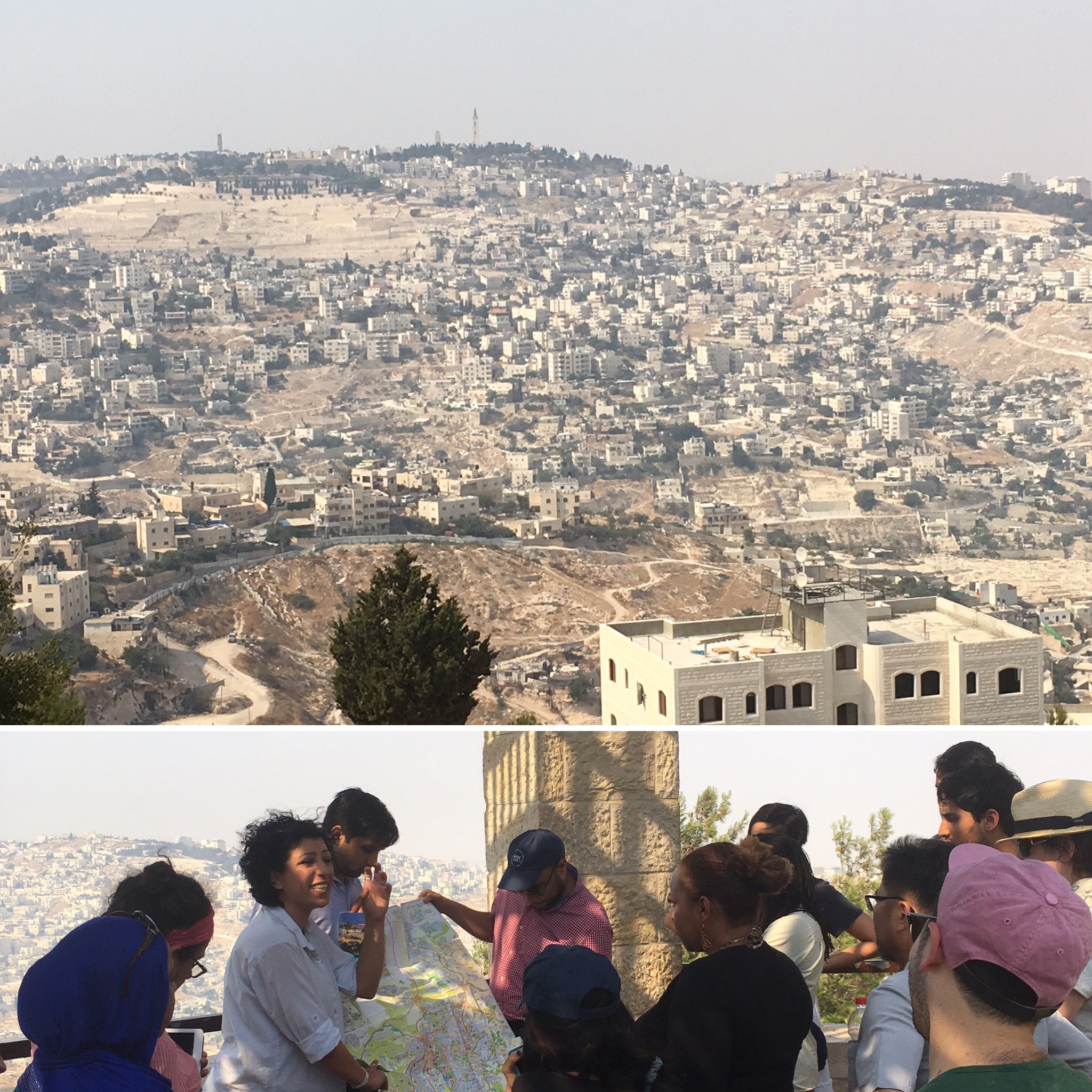UNDERSTANDING MARYLAND THROUGH PALESTINE
Growing up in suburban Maryland, I learned our state was rich with historic significance and contemporary culture. I visited Camp David, just an hour from my home, as a child knowing it as the retreat center for American presidents in the heart of the Appalachian mountains. I never learned that Camp David was home to the signing of the Oslo Accords, one of the greatest failures of Palestinian-Israeli negotiations that never published nor implemented its agreements. After twenty four years post-Oslo, my entire lifetime, Palestine has seen the failure of the international community to enact refugees' right to return and hold Israel accountable for its continual land annexation.
Returning home from Palestine this week has been illuminating and challenging to see the interconnectedness between my state and the homeland of Palestinians, a place equal in size and 5,860 miles away. I have noticed striking similarities in the way that farmers here take pride in being from Maryland, raising their children and tending to crops in the same place for generations, similar to the way that Palestinian farmers claim nine centuries of heritage in one place. I feel despairing to imagine if all the farmers in my county were forcibly displaced at the rate Palestinians have been, over 95% of the indigenous population. I have also seen that Maryland has largely erased its genocide against the Native American peoples, the Iroquois-speaking tribes of my county, while Israel denies the on-going ethnic cleansing of Palestine.
The connections become more concrete when I think about the role that the US, and Maryland specifically, play to finance the occupation. As home to the Maryland-Israel Development Center, a public-private partnership to support Israeli companies in the US, we also house the headquarters of more than two dozen Israeli companies in Maryland. In 2015, Maryland was Israel's 19th largest trading partner with $145 million in products exported from the state. The economy of my state is built on the exploitation and denial of rights to Palestinians through what my governor Larry Hogan calls "a real synergy" between us and Israel.
The complicity of the government and the business community has allowed one of my state senators, Benjamin Cardin, to co-author the most targeted bill against activism for Palestine at the federal level. The Israel Anti-Boycott Act would make it a felony to enact our constitutional right to divest from the Israeli occupation of Palestine, which the ACLU among other groups has denounced as a violation of free speech. The bill would make it impossible for US corporations and governments to sanction Israel for its crimes against humanity, including its eviction of Palestinian landowners while building illegal settlements, the imprisonment of children, and the disastrous siege on Gaza. This bill shows the codified and unconditional support of my government for an illegitimate and unjust state.
The call for justice in Palestine echoes onto the shores of my homeland, too, when I think of our shared struggles against police brutality. The Baltimoreans who protested the police murder of Freddy Gray, a young Black man killed in 2015, were met with the same blinding US-manufactured tear gas that our Palestinian neighbors in Jaffa breathed last week. My friend Amed was arrested for protesting the shooting of a young unarmed Palestinian man, his life taken by militant policemen with seven bullets to the chest. We also learned that Jews of color are heavily policed within the state of Israel using similar tactics of racial profiling as we see targeting our minority communities. It is no coincidence that the United States and Israel have exchanged police trainings and surveillance technologies for fifty years, strengthening the logic of the occupation in US cities and counties. In funding a police state, both governments steal critical education funding: Jerusalem currently lacks 2,000 classrooms for its Arab citizens while Baltimore City Public Schools has a $130 million dollar deficit.
While I do not see the remnants of destroyed Palestinian villages or the segregation wall jutting through Maryland, I do see the oppressive systems that operate in both contexts and the collective struggle for freedom we share. I remember the words of a Palestinian host who told us: "You are resistance fighters, too, when you work for the liberation of Palestine."
One of our leaders at Dheisheh Refugee Camp, Murad, reminded us that it was our responsibility, not our kindness, to work for justice in Palestine. "This is your duty," he told us.
As a person of faith and a resident of this state, I know that none of us is free until Palestinians see their dignity and human rights restored, to see the day when families are reunited across the apartheid wall and farmers can again water their crops. The least that they ask is we stop funding their oppression.
Two weeks ago, I stepped onto the soil of a land that will shape my understanding of every other place, including my home. To our friends working for liberation in Palestine and Israel, we will not forget you. In the words of Black activist Assata Shakur:
"It is our duty to fight for our freedom.
It is our duty to win.
We must love each other and support each other.
We have nothing to lose but our chains."

